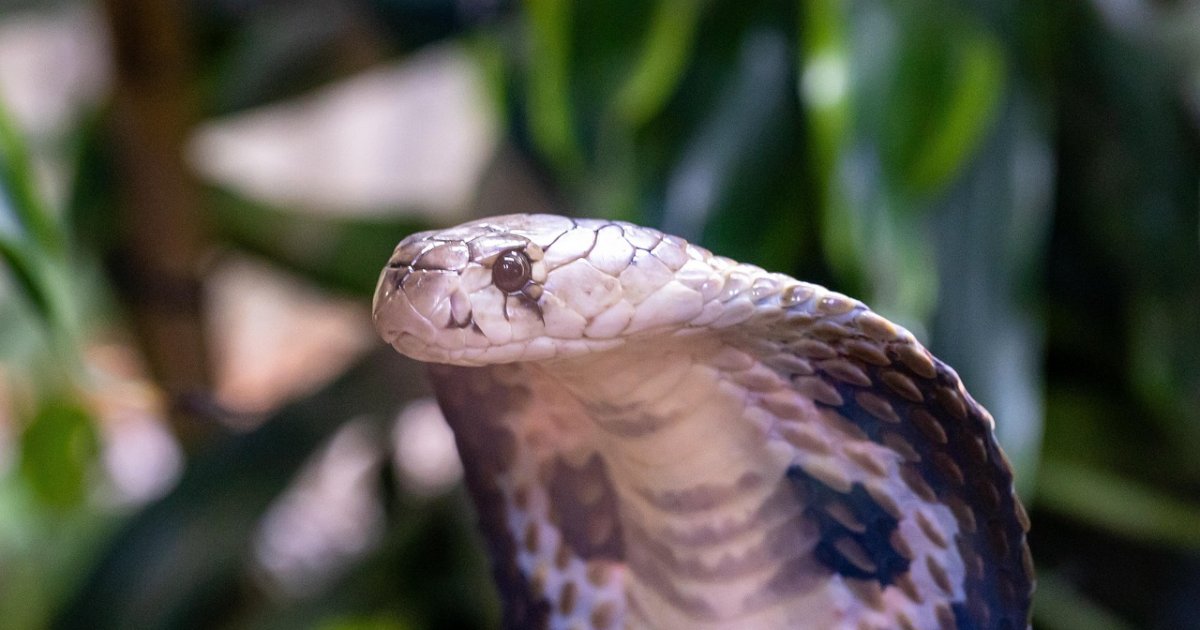Imagine waking up one morning and finding a snake curled beside your bed. Or hearing a soft, sinister rustle from the garage, only to discover a cobra nesting beside your car. Such scenes have unfolded not in some wild forest but in the heart of Dhaka — the so-called modern metropolis. Over the past few months, hundreds of venomous snakes have been discovered in homes, flats, garages, and even ninth-floor apartments. The city that once prided itself on rising skylines and smart living now hosts serpents slithering up stairwells.
Perhaps, that is not as surprising as it sounds. Dhaka has long been full of snakes. Only, until recently, they wore suits, spoke in committee meetings, and hissed through microphones. Now, they have simply taken a more honest form.
The real snakes, the ones with scales, are merely symbolic — a poetic coincidence. The other kind, those with signatures and authority, have been shedding skins for decades. They sit in parliament, preach morality, manipulate laws, and smile for cameras, while the city beneath them festers.
For years, we have destroyed the ponds, canals, and wetlands that sustained ecological balance. In the name of development, we filled the water bodies and uprooted the trees, leaving no space for the creatures that once belonged there. Displaced and desperate, they now crawl into our rooms. Similarly, in our social landscape, we drained the moral reservoirs that once kept corruption at bay. We silenced conscience, filled the holes of justice with propaganda, and paved over truth. And now, like their reptilian cousins, the moral snakes too have nowhere to go but into our institutions.
Snakes thrive in heat, darkness, and neglect. So does corruption. It grows in secrecy, hides in the cracks of bureaucracy, and strikes only when least expected. One might say that Dhaka’s infestation is only a biological metaphor for the nation’s political condition. The city’s real ecosystem — of accountability, honesty, and transparency — has collapsed.
The judiciary, once the antidote to power, now seems to have developed a curious immunity to venom. The scales of justice, once balanced, now tilt subtly depending on who’s holding the stick. The blindfolded lady in our courtrooms must often peek, for how else could verdicts align so conveniently with political tides? Justice, like the snake’s tongue, flicks in two directions — sharp, forked, and selective.
Politics, too, has become a serpent pit. Those once branded as criminals slither back as saints when the power wind shifts. One government’s traitor becomes the next one’s advisor. The accused are recycled, repackaged, and revered. The law doesn’t change, only the handlers do. The same venom circulates, injected by different fangs. The only thing that seems immune is accountability.
Even the media, the supposed mongoose in this drama, now seems hypnotized by the serpent’s stare. Once fierce and fearless, it has learned to hiss in harmony. Headlines no longer strike — they slither. News bends and coils to fit the shape of convenience. Truth is tamed, and lies are given prime time. And when a real journalist dares to step on the tail of power, the system strikes back with venomous precision.
But perhaps the most dangerous transformation has occurred in the minds of the people. Years of deceit, denial, and distortion have built a society where disbelief is the default. When snakes crawl into living rooms, people shrug. When justice crawls out of courtrooms, they shrug again. This collective paralysis is the final triumph of the serpent state — when the bitten no longer feel the bite.
Snakes, by nature, are not evil. They strike when threatened. But the snakes that now rule our civic life strike not out of fear but habit. They have grown fat on impunity and comfortable in corruption. Every scandal, every looted fund, every manipulated trial ends the same way: silence. The files vanish, the names evaporate, the inquiry committees slither away. And just as citizens begin to demand accountability, another crisis conveniently appears to distract them. The venom works fast.
Meanwhile, the poor citizen who once believed in institutions finds himself trapped in a maze of deceit. He goes from police to court, from office to ministry, only to discover that each door leads to another snake hole. When the walls themselves hiss, where does one seek shelter? The old proverb asks where medicine can be applied when the entire body aches. The modern version might be: Where do you find an antidote when the venom runs in the veins of the state?
Even nature seems to be mocking us. The reptiles we once confined to jungles now reclaim our rooftops. The irony is exquisite. The city that could not manage its sewage, traffic, or waste now cannot manage its serpents. The jungle has returned, not as a greencanopy, but as a moral metaphor. And perhaps, this is the justice nature delivers when human justice fails.
One might argue that the snakes of Dhaka are harmless compared to the serpents in suits. The real threat comes not from the cobras under beds but from the cobras behind desks. They draft laws with one hand and break them with the other. They promise reform while digesting funds. They speak of patriotism while poisoning the republic. And unlike the natural snake, they leave no visible bite marks. Their venom spreads quietly — through policies, propaganda, and fear.
It is almost poetic how we have become a civilization that fears the wrong snakes. The reptile in the bathroom can at least be caught and released. The bureaucratic boa that strangles justice has no catcher. It hides behind procedural jargon and smiles during press briefings. The moral vipers that inject lies into public discourse are celebrated on talk shows. Even the watchdogs have learned to crawl.
Every society breeds its own predators. But in some, the predators learn to govern. In such societies, law becomes a decorative slogan, justice a seasonal fruit, and truth a souvenir for export. People learn to coexist with lies as they once did with mosquitoes — swatting occasionally, surrendering mostly. And soon, the distinction between victim and accomplice begins to blur.
Yet, perhaps all is not lost. Snakes, after all, shed their skin. Renewal, though painful, is possible. But it requires something this nation has long avoided: Self-purification. To cleanse the system, one must first admit it is poisonous. That is where our true paralysis lies — not in the lack of cure, but in the refusal to diagnose.
When the next snake slithers out of a Dhaka apartment, perhaps we should pause before calling it strange. Perhaps it is only a reminder from nature that venom, once unleashed, does not stay confined to one species. It seeps, spreads, and returns. The moral decay we tolerated has found a new shape, a visible one. The reptile in the room is no longer a metaphor — it is prophecy.
So, when we read about yet another cobra found in a high-rise, we should not be surprised. We built the city on buried wetlands and buried truths. The snakes have merely come home.
And perhaps, in a nation where truth is on trial and justice lives in exile, the snake is the most honest citizen left. It hisses, but it does not lie.
H M Nazmul Alam is an Academic, Journalist, and Political Analyst based in Dhaka, Bangladesh. Currently he is teaching at IUBAT. He can be reached at [email protected].



